
The founder and executive director of the Sumaira Foundation discussed her experience living with NMOSD and the global organization she created to help patients with the same condition. [WATCH TIME: 6 minutes]

The founder and executive director of the Sumaira Foundation discussed her experience living with NMOSD and the global organization she created to help patients with the same condition. [WATCH TIME: 6 minutes]
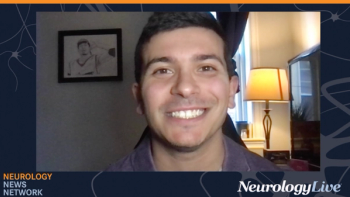
Neurology News Network for the week ending November 12, 2022. [WATCH TIME: 4 minutes]
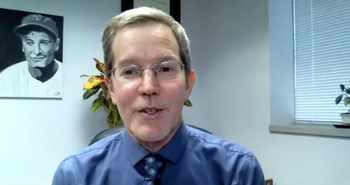
The codirector of the ALS Center at Washington University School of Medicine provided perspective on the lessons learned from the trials of tofersen, as it aims to become the first FDA-approved therapy specific to SOD1 ALS. [WATCH TIME: 4 minutes]
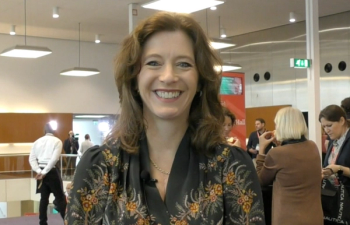
The chief of neurology and codirector of the neuroscience Center at the Children's Hospital of Philadelphia spoke about her presentation at ECTRIMS 2022 on the treatment of pediatric MS. [WATCH TIME: 5 minutes]
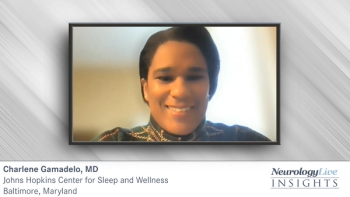
Charlene Gamadelo, MD, describes the different categories of FDA approved treatments for insomnia along with challenges associated with these treatments.

Charlene Gamadelo, MD, provides an overview of commonly utilized insomnia treatment modalities in the treatment of female patients with insomnia.
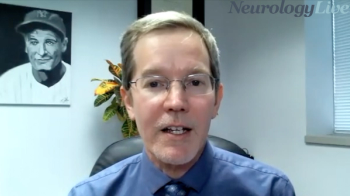
The codirector of the ALS Center at Washington University School of Medicine in St. Louis provided background on how tofersen would be used alongside other ALS medications if approved. [WATCH TIME: 3 minutes]
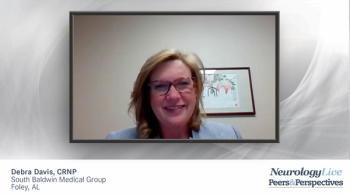
Advanced practice practitioners discuss different types of sleep disorders in the general population and their impact on quality of life.

Wendy L. Wright, DNP, ANP-BC, FNP-BC, FAANP, FAAN, FNAP, and Debra Davis, CRN, provide an overview of the prevalence of insomnia in clinical practice.
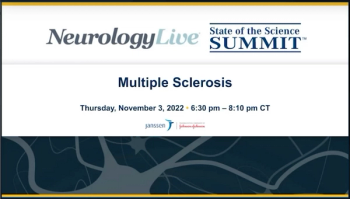
Chaired by Robert T. Naismith, MD, of Washington University in St. Louis, the presentations also feature Salim Chahin, MD, MSCE; Anne H. Cross, MD; Gregory F. Wu, MD, PhD; and Matthew R. Brier, MD, PhD. [WATCH TIME: 1 hour, 55 minutes]
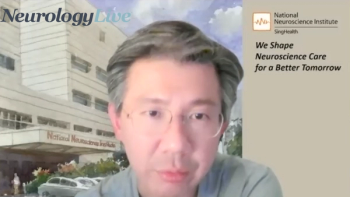
The senior consultant for the department of neurology at the National Neuroscience Institute discussed a report on two patients who developed an uncommon adverse event of late-onset neurotropenia after anti-CD20 therapy treatment. [WATCH TIME: 8 minutes]
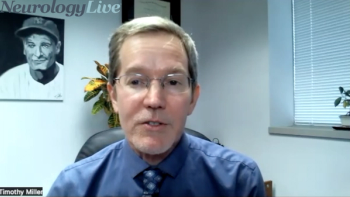
The codirector of the ALS Center at Washington University School of Medicine in St. Louis discussed the long-term data of VALOR and its open-label extension assessing tofersen (Biogen) in SOD1 ALS. [WATCH TIME: 4 minutes]
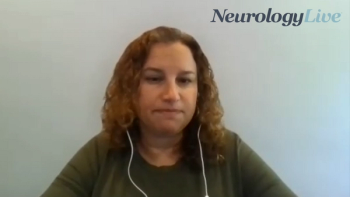
The executive vice principal of advocacy and healthcare access at the National MS Society offered a brief overview of the Inflation Reduction Act of 2022 and how it relates to the economic impact faced by patients with MS. [WATCH TIME: 5 minutes]
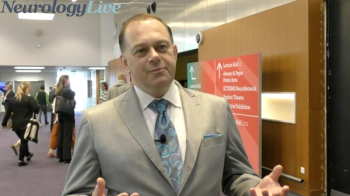
The clinical research director of the UCSF Multiple Sclerosis Center provided perspective on the importance of serum neurofilament light and how it can be used in the management of patients with NMOSD. [WATCH TIME: 3 minutes]
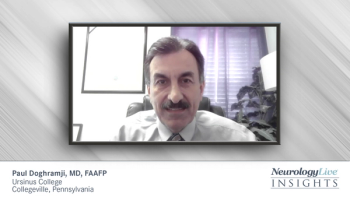
Paul Doghramji, MD, FAAFP, discusses best practices for referring patients with sleep issues to a sleep specialist.

An expert in sleep medicine comments on approaching screening patients for insomnia or other sleep disorders in the primary care setting.
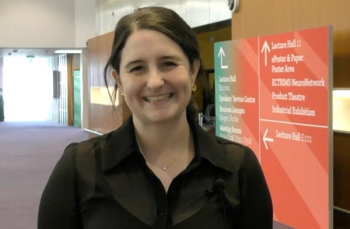
The staff neurologist at the Mellen Center for MS Treatment and Research at Cleveland Clinic spoke about her presentation from ECTRIMS 2022 on teleneurology and its utilization as a tool to make care more accessible to patients with MS. [WATCH TIME: 7 minutes]

The staff neurologist at the Mellen Center for MS Treatment and Research at Cleveland Clinic, spoke about her presentation on teleneurology being a beneficial healthcare tool for patients with MS at ECTRIMS 2022. [WATCH TIME: 7 minutes]
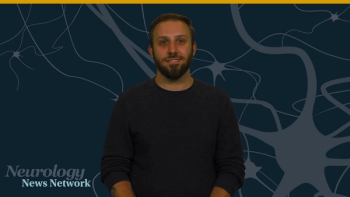
Neurology News Network for the week ending November 5, 2022. [WATCH TIME: 3 minutes]

An overview of the different roles of health care professionals in the management of female patients suffering from insomnia.

An overview of the impact insomnia can have on female patient’s quality of life and how they communicate sleep disturbance concerns with health care professionals.
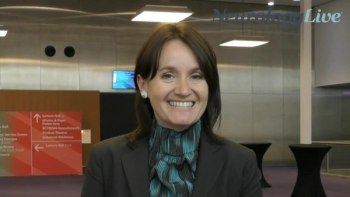
The associate professor of neurology at the University of California, San Francisco, discussed the key points from an oral presentation at ECTRIMS 2022 on understanding postpartum for patients with MS and NMOSD. [WATCH TIME: 4 minutes]
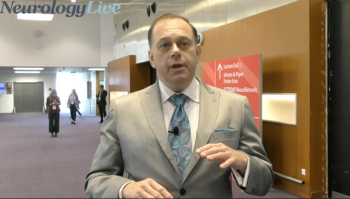
The clinical research director of the UCSF Multiple Sclerosis Center discussed the need for measures of progression in neuromyelitis optica and the next steps in treatment. [WATCH TIME: 4 minutes]
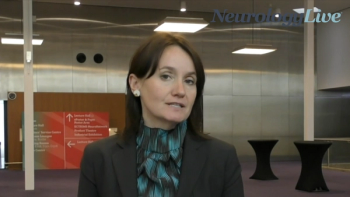
The associate professor of neurology at the University of California, San Francisco, discussed takeaways from an oral presentation at ECTRIMS 2022 on the use of anti-CD20 therapies in postpartum for patients with MS and NMOSD. [WATCH TIME: 5 minutes]
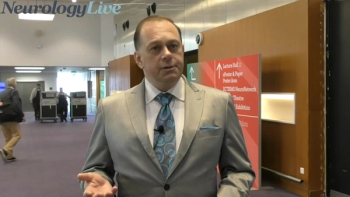
The clinical research director of the UCSF Multiple Sclerosis Center provided insight on an abstract from ECTRIMS 2022 regarding inebilizumab’s mechanism of action to prevent NMOSD attacks. [WATCH TIME: 3 minutes]
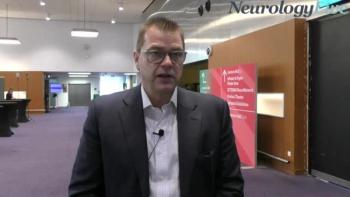
The director of the Buffalo Neuroimaging Analysis Center provided context on a new study exploring ocrezliumab’s (Ocrevus; Genentech) effect on leptomeningeal inflammation and humoral response to EBV. [WATCH TIME: 5 minutes]

Episode 28 of the AUPN Leadership Minute features Mud M Alvi, MD, of West Virginia University; and David Lee Gordon, MD, FAAN, FANA, FAHA, of University of Oklahoma. [WATCH TIME: 8 minutes]
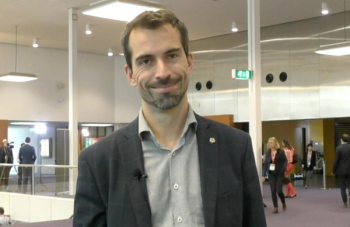
The professor of neurology and biostatistician at University of Melbourne and Royal Melbourne Hospital spoke on stem cell transplantation in patients with MS and its effectiveness in comparison with other traditional approaches. [WATCH TIME: 2 minutes]

Dr Paul Doghramji shares insight on reasons for the underdiagnosis of insomnia and the importance of treating sleep disorders concurrently with comorbidities.
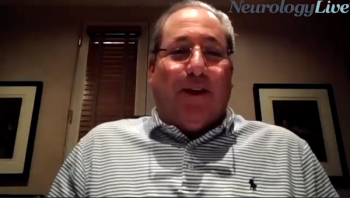
As the treatment landscape for relapsing MS continues to strengthen, the neurologist at Allegheny Health Network discussed the reasons for continued pursuit of drug development. [WATCH TIME: 3 minutes]